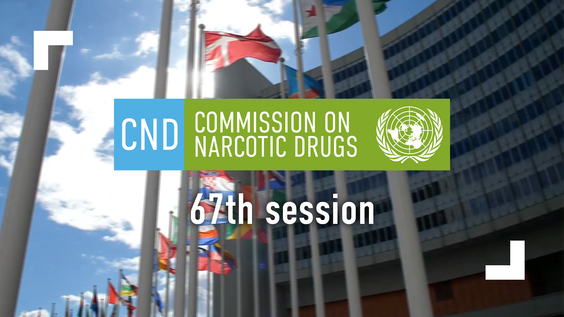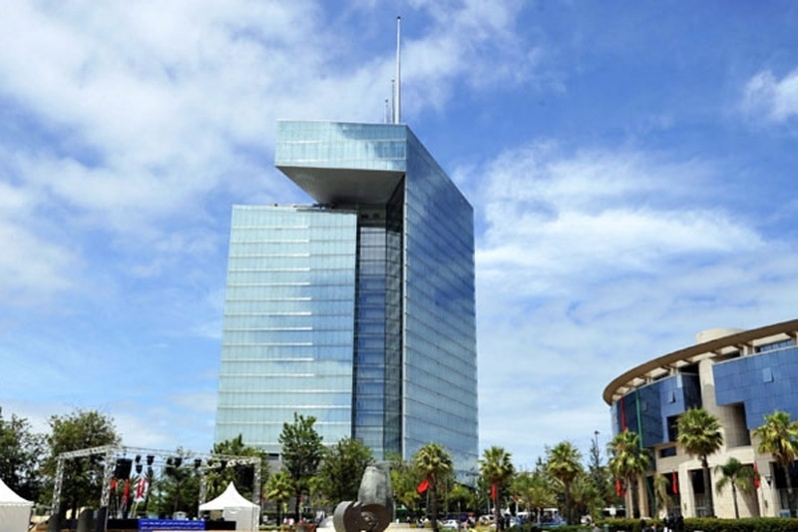Morocco’s efforts in combating trafficking of psychotropic and psychoactive substances were highlighted at a high-level side-event held in Vienna , as part of the 67th Session of the Commission on Narcotic Drugs (CND).
The meeting, held under the theme “Protecting global health and safety: mounting a unified international response to synthetic drugs and their precursors” and organized by the United States in partnership with the United Nations Office on Drugs and Crime (UNODC), highlighted Morocco’s “balanced and integrated” approach to addressing the harmful effects of illicit synthetic drugs and psychoactive substances.
Morocco’s Permanent Representative in Vienna, Azzeddine Farhane, underlined the significant challenges facing up the Kingdom in matters of trafficking in these substances, and revealed that Moroccan authorities seized over 8 million tablets, including ecstasy and psychoactive substances, from 2019 to 2023.
The diplomat highlighted Morocco’s efforts to prevent and counter the illicit use of synthetic drugs, and surveyed the national strategy for preventing and managing addictive disorders, developed by the Ministry of Health.
Farhane also highlighted the efforts made by Moroccan authorities to detect, seize, and prevent trafficking in synthetic drugs and psychoactive substances, praising the “fruitful cooperation” between Morocco and its partners in the fight against drug trafficking.
“I would like to mention in particular the seizure of 490,000 synthetic opioid tablets in Tangiers in the course of 2021, thanks to information provided by the US Drug Enforcement Agency”, he told participants at the meeting, which was opened by the US Secretary of State, Antony Blinken, and the Executive Director of the UNODC, Ghada Waly.
Farhane underscored the significance of the side-event amidst an unprecedented rise in production, trafficking, and use of synthetic drugs and psychotropic substances globally, which he described as “great concern to the international community”. “This unique moment gives us the opportunity to discuss and share best practices and experiences in our common daily fight against the harmful effects of synthetic drugs,” said Farhane, welcoming the launch of the Global Coalition to Combat Synthetic Drug Threats, last July.
As a member of this global coalition, Morocco is convinced that “together with the other members, we can meet the challenges posed by synthetic drugs, for the well-being of our populations and the prosperity of our societies,” noted the diplomat, who described the coalition as “a significant platform for sharing best practices and experiences in managing the threats posed by synthetic drugs and other psychoactive substances.”
“The growing threats posed by synthetic drugs call on us to coordinate our actions, build our capacities and put in place a working plan to meet the new challenges posed by synthetic drugs as a global health problem, he said.” The diplomat stressed in this connection the need to create “synergy, momentum and complementarity” between the Coalition and the CND, as well as with other relevant UN bodies, and to strengthen regular exchanges and dialogue with the multilateral processes in Vienna, Geneva, and New York.
In addition to Farhane, the only African ambassador to take part in this side-event, the meeting was attended by the President of the International Narcotics Control Board (INCB), Jallal Toufiq, ambassadors, permanent representatives, diplomats, UN experts, representatives of international organizations and government officials.
Created at the initiative of the United States, the Global Coalition to Combat Synthetic Drug Threats aims to bring together key international players, governments, intergovernmental organizations, specialized agencies, civil society, and the private sector for concerted action to address the challenges posed by synthetic drugs on a global scale.
The Moroccan diplomat who also participated in a debate on the global drug problem called for a renewed collective action to address all aspects of this problem and stressed the importance of adopting science and evidence-based approaches to guide this action, while emphasizing the necessity of revitalizing the international consensus on drug-related issues.
He called for a comprehensive approach to tackling drugs as both a social and technical problem, urging that it should transcend narrow political agendas. Farhane underscored the importance of enhancing technical cooperation and national capacities, particularly in developing countries and Africa, through bilateral or triangular frameworks.
Morocco, committed to supporting the effective implementation of international commitments in drug prevention and combat, intends to strengthen cooperation with African nations, mainly through sharing the expertise Morocco gained thanks to its National Strategy for Combating Drugs.
Morocco has implemented a holistic strategy to combat drug trafficking and the distribution of psychotropic substances, aligning with its international obligations. This comprehensive approach, aimed at early prevention of addictive behaviors, addresses both the supply and demand sides of drug and psychotropic substance abuse, explained Farhan.
“It is based on a clear vision that takes into account the Sustainable Development Goals and the human rights dimension, while involving civil society and other stakeholders in its implementation,” he added.
The diplomat also highlighted that following the Commission’s endorsement of the WHO recommendation to reclassify cannabis for medical and scientific utilization, Morocco enacted Law 13-21 in 2021, regulating the legal employment of cannabis. This law established a national agency tasked with overseeing and steering all lawful cannabis activities.
Operated through a stringent control and tracking system, this agency is striving to fulfill the objectives outlined in the law governing activities pertaining to the lawful utilization of cannabis. These objectives include curtailing the illicit supply of cannabis by transitioning illegal cultivation into legal channels, fostering the development of cannabis-based products and medications within the pharmaceutical sector, and involving the populace in the developmental process.
Regarding Morocco’s involvement in global endeavors to combat criminal networks engaged in the trafficking of narcotics and psychotropic substances, Farhane highlighted the Moroccan authorities’ efforts, resulting in the seizure of significant quantities of illicit substances from 2019 to 2023. These seizures include 1,753.26 tons of cannabis resin, 1,406.02 tons of cannabis herb, 5,439.09 kg of cocaine, 28.78 kg of heroin, and over 8 million psychotropic tablets.



